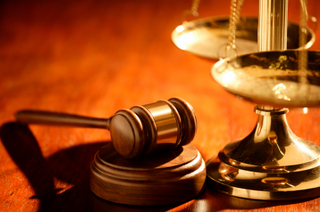Independent journalists and international human rights organizations are concerned about the future of free-press development in Kazakhstan
Published:
20 January 2004 y., Tuesday
Independent journalists and international human rights organizations are concerned about the future of free-press development in Kazakhstan, citing pending media legislation that would effectively give the government the ability to meddle in the operations of news-gathering organizations.
A clear majority in Kazakhstan's lower house of parliament, or Mazhilis, passed the media bill on December 25. Free-speech advocates believe the upper house, or Senate, will approve the bill as early as in mid-February. "We have no hope in the Senate, and [only] a very small hope that the president will reconsider and not sign this draft law," said Irina Petrushova, editor of the opposition Assandi Times newspaper.
Under the law, the Ministry of Information Affairs would have nearly unlimited powers to suspend a media organization's operations. The law places no restrictions on monopolies, and does little to guarantee journalists' rights. The law vaguely states that journalists have a right to gather information. At the same time, the legislation mandates that media organizations perform certain functions as defined by the Ministry of Information - a requirement that critics fear could be used to deny registration to media outlets that anger the government.
Petrushova, one of the bill's most outspoken critics, said the Western reaction to the media bill could play a pivotal role in its future. An outcry against the law by Western government and non-governmental groups could pressure Kazakhstani President Nursultan Nazarbayev not to sign the restrictive legislation. The Assandi Times has already published two so-called "protest editions" with statements from international organizations such as Reporters Without Borders and the World Association of Newspapers that criticize the draft law. The newspaper plans to release additional special editions in January to draw fresh international attention to the legislation. But, so far, such criticism appears to have had little effect.
Šaltinis:
EurasiaNet
Copying, publishing, announcing any information from the News.lt portal without written permission of News.lt editorial office is prohibited.
The most popular articles
 The European Commission will address the issue of gender equality in a time of economic crisis during a conference in Brussels on 15 and 16 June 2009.
more »
The European Commission will address the issue of gender equality in a time of economic crisis during a conference in Brussels on 15 and 16 June 2009.
more »
 The recent European Parliament elections could be called the first “on-line” euro-election.
more »
The recent European Parliament elections could be called the first “on-line” euro-election.
more »
 Cyprus, Greece, France and Malta have Europe’s cleanest beaches.
more »
Cyprus, Greece, France and Malta have Europe’s cleanest beaches.
more »
 Little Ted's nursery in the English city of Plymouth remains closed. The parents of the children who use it are in shock.
more »
Little Ted's nursery in the English city of Plymouth remains closed. The parents of the children who use it are in shock.
more »
 After snatching Taiwan's National Party Secretary toupee , political protester Huang Yung was sentenced to five months.
more »
After snatching Taiwan's National Party Secretary toupee , political protester Huang Yung was sentenced to five months.
more »
 The frantic search for a US climber continues.
more »
The frantic search for a US climber continues.
more »
 A High Court judge in Belfast ruled that four men and the outlawed Republican dissident group, the Real IRA were responsible for the 1998 Omagh bombing.
more »
A High Court judge in Belfast ruled that four men and the outlawed Republican dissident group, the Real IRA were responsible for the 1998 Omagh bombing.
more »
 On World Oceans Day the European Commission recalls the vital role seas and oceans play for Europe.
more »
On World Oceans Day the European Commission recalls the vital role seas and oceans play for Europe.
more »
 These unemployed Americans are looking for work. But this is not a job centre they are queuing up at. It's a clinic offering free Botox jabs to help them in their quest.
more »
These unemployed Americans are looking for work. But this is not a job centre they are queuing up at. It's a clinic offering free Botox jabs to help them in their quest.
more »
 Around 350 km above the earth on the International Space Station is a good place to observe what's happening on earth.
more »
Around 350 km above the earth on the International Space Station is a good place to observe what's happening on earth.
more »